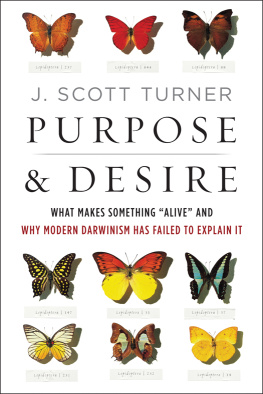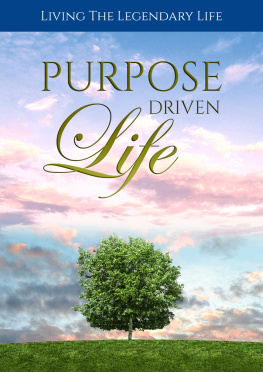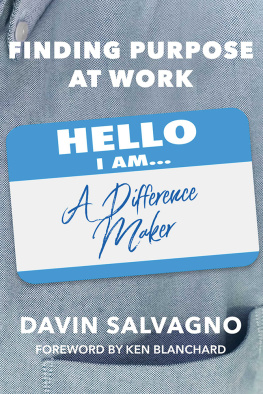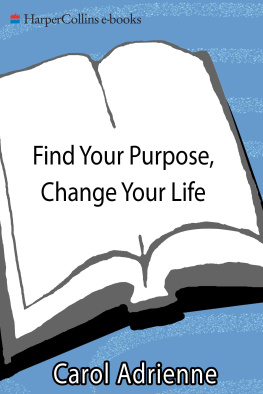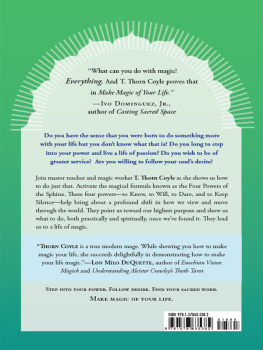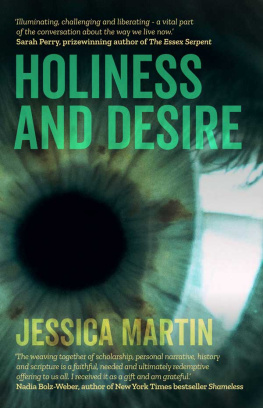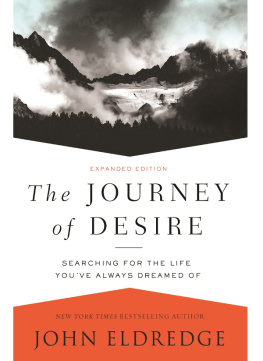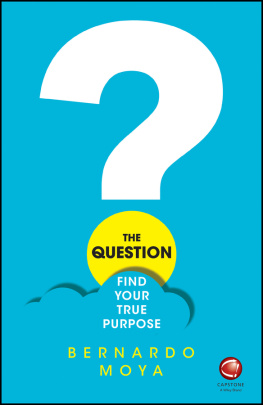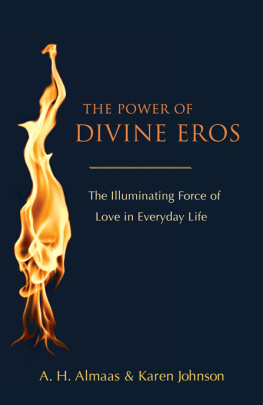Just shoot me now...
On one side is the ebullient and engaging Will Provine telling me:
There are no gods, no purpose, no goal-directed forces of any kind.... There is no ultimate foundation for ethics, no ultimate meaning to life, and no free will for humans, either.
On the other side, the astonishing Francis Crick says to me that
[science has shown you that] your joys and your sorrows, your memories and your ambitions, your sense of identity and free will, are in fact no more than the behaviour of a vast assembly of nerve cells and their associated molecules. As Lewis Carrolls Alice might have phrased it: Youre nothing but a pack of neurons.
Standing in front of me, the relentless Richard Dawkins informs me,
The universe we observe has precisely the properties we should expect if there is, at bottom, no design, no purpose, no evil, no good, nothing but blind, pitiless indifference.
And, standing behind me, the dangerous Daniel Dennett hectors me through his magnificent beard that its all a mindless algorithm:
No matter how impressive the products of an algorithm [i.e., natural selection], the underlying process always consists of nothing but a series of individually mindless steps succeeding each other without the help of any intelligent supervision.
Beset from all sides, the message could not be more clear. Its all endless, mindless, purposeless, relentless, no point, no purpose, no intent, no goal, no... nothing.
Oh, dear!
Im indulging in a little bit of caricature here, of course. Provine, Crick, Dawkins, and Dennett often show up as exemplary btes noires on creationist, intelligent design, and other generally anti-Darwinian websites showing us what the dangerous Darwinian world has in store for us, as heralded by these supposed Four Horsemen of the Evocalypse. Its an unfair accusation; all these authors have written extensively, deeply, and subtly on the central paradox of Darwinism: the problem of what seems like design, intentionality, intelligence, and purposefulness in the living world. One cannot read their works (or meet them in person) without sensing in them the joy that comes from being able to frolic and wriggle through the tangled banks of the Darwinian idea.
Nevertheless, one also gets the impression of a different form of gleean almost Calvinist gleeat the prospect of using Darwinism as a cudgel to dethrone what Carl Sagan once described as the demon-haunted worlda world that is permeated with spirits and gods that shape and control it, intelligently, purposefully, and intentionally. Spending time wandering through the Darwinian thickets with our four horsemen and their acolytes, one is left wondering whether their philosophical joie de vivre has not lapsed into inebriation and intoxicationand into intoxications usual end point: grumbling nihilism and meaninglessness.
One could dismiss this type of talk as the gloom-mongering old men like me are prone to, but I dont think thats all it is. An anecdote: a few years ago, I was sitting at lunch at my university with a friend and colleague along with a small gaggle of students. As we often did on these occasions (as we are both professors and therefore pedantic), we were putting on a little bit of a performance for our lunch companions, our discussion turning on the very problem of intentionality and purposefulness that the four horsemen had denounced most forcefully. Our little debate centered on whether intentionality is something real, that is, a genuine phenomenon that exists in and of itself, and is therefore susceptible to scientific inquiry; or whether intentionality is only apparent, that is, mindless molecular churning that creates only an appearance of intentionality in the credulous human mind. At one point, I asked my friend the question: What if intentionality is real? Furthermore, what if intentionality is not only real, but is actually the most important attribute of life? Could we then be scientists true to our calling if we ignored it? His answer was no, we could not then be scientists; we would have to be something elsephilosophers, perhaps, or theologians. That unsatisfying end was where we left it that day, with my questions unanswered. So I am left with them: What if the distinctive attributes of life truly are intentionality, purposefulness, and the wants and desires, however inchoate, of living things? How could we possibly understand life if we deliberately ignored those attributes?
And another anecdote: this book started out as a sequel to my book The Tinkerers Accomplice, which explored what I thought then to be the unsolved and very real problem of biological design. I had included in that book a short chapter on intentionality, arguing that intentionality was not some magical thing; it was in fact the obverse of cognition, which itself found its origins in the homeostasis of the brain ecosystem. I thought it was a pretty little idea, not into the weeds at all, but my chapter on intentionality provoked emphatic displeasure from a reviewer writing for the books section of a prominent newspaper. This reviewer was a fellow scientist of some renown, and his displeasure was provoked not so much by what I had to say about intentionality, but by the fact that I had had the temerity to even bring up the subject, which he felt had no place in a book that presumed to be scientific. Fair enoughreasonable people can differ on this. But he had gone on to demand that I should have made known my religious beliefs (Im a Christian, if that matters, albeit not a very good one). This struck me as strange, even a tad illiberal. Would he have demanded a religious confession from an author whose views he had found more congenial? And what would he have done armed with my confession in hand? You see what happened here: I had raised issues as a scientist trying to explain phenomena in my field of study, but my reflections were seen as being so out of bounds (and threatening, presumably) that they could only be explained by religious motivations that I was trying to sneak into my work. I had clearly struck a nerve.
The conclusion I draw from these two anecdotes is that we scientists have a problem with the very idea of purposeful life, and the problem is widespread. To be scientists, it seems that the first thing we must do is put on blinders to squishy ideas like purposefulness, intentionality, and a guiding intelligence. But what if these ideas are central to the phenomenon we are studyinglife itself? Can questions of purpose and desire be imposed only from outside the work of science? Isnt that precisely the opposite of what we, as scientists, should do? Yet, we force ourselves into a Hobsons choice on the matter: accept intentionality and purposefulness as real attributes of life, which disqualifies you as a scientist, or become a scientist and dismiss lifes distinctive quality from your thinking.

Which brings me to the book you hold in your hand. I have come to believe that there is something presently wrong with how we scientists think about life, its existence, its origins, and its evolution. Its bad enough that we are somehow forced into making the Hobsons choice described above. Whats worse is that being forced to make the choice actually stands in the way of our having a fully coherent theory of life, in all its aspects, most notably its evolution. In other words, this bias is now hindering scientific progress.
This is tragic, because there is nothing in the nature of the science of life per se that forces the choice to be made. The problem traces its beginning to the early twentieth century, when biology sold its soul, so to speak, committing the practitioners of the science of life wholesale to the essentially philosophical premises of mechanism and materialism. At the time, this probably seemed a sensible thing to do, in no small part because biology (and evolutionism) had wandered off into a muddle of obscurantism. Turning away from that older tradition to take a new cold hard look at the material and mechanistic underpinnings of life brought much-needed clarity to our understanding of the phenomenon of life. That is why much of the twentieth century is rightly considered a golden age for the science of life.
Next page
